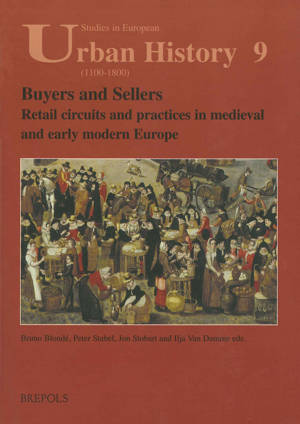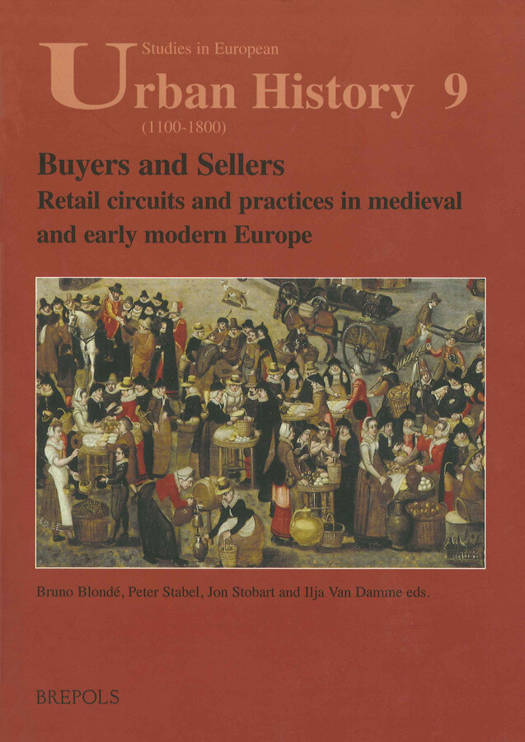
Bedankt voor het vertrouwen het afgelopen jaar! Om jou te bedanken bieden we GRATIS verzending (in België) aan op alles gedurende de hele maand januari.
- Afhalen na 1 uur in een winkel met voorraad
- In januari gratis thuislevering in België
- Ruim aanbod met 7 miljoen producten
Bedankt voor het vertrouwen het afgelopen jaar! Om jou te bedanken bieden we GRATIS verzending (in België) aan op alles gedurende de hele maand januari.
- Afhalen na 1 uur in een winkel met voorraad
- In januari gratis thuislevering in België
- Ruim aanbod met 7 miljoen producten
Zoeken
Omschrijving
Consumption is now a critical issue in late medieval and early modern historical and cultural studies. While we know increasingly about regulatory systems, we know much less about the daily practice of buying and selling. This book brings together contributions from urban historians, social historians and art historians to explore the issues of exchange, shopping behavior, social interactions, gender and physical space. Contributions deal with Italy, the Low Countries and England. In the articles in this volume lines of continuity between the medieval and early modern period have been stressed. In addition, some critical questions have been raised. Were markets necessarily less modern compared to fixed shops? How did changing consumers and consumer patterns interact with the retailer? The essays published here also emphasize the need to study different commercial circuits in their context. These circuits often overlapped and could not artificially be isolated from one another. Authors B.Blonde, R.Britnell, D.Calabi, H. Deceulaer, D. Gentilcore, V. Harding, B. Lemire, F.Nevola, J.Shaw, E.Steegen, P.Stabel, J. Stobart, L. Van Aert, I. Van Damme, C.Walsh, E.Welch. Bruno Blonde is Director of the Centre for Urban History at the University of Antwerp. His current research interests include: urban history, social inequality and living standards, consumption and retailing history and historical social network analysis.
Specificaties
Betrokkenen
- Auteur(s):
- Uitgeverij:
Inhoud
- Aantal bladzijden:
- 351
- Taal:
- Engels
- Reeks:
- Reeksnummer:
- nr. 9
Eigenschappen
- Productcode (EAN):
- 9782503515809
- Verschijningsdatum:
- 1/04/2006
- Uitvoering:
- Paperback
- Formaat:
- Trade paperback (VS)
- Afmetingen:
- 180 mm x 250 mm
- Gewicht:
- 762 g

Alleen bij Standaard Boekhandel
+ 137 punten op je klantenkaart van Standaard Boekhandel
Beoordelingen
We publiceren alleen reviews die voldoen aan de voorwaarden voor reviews. Bekijk onze voorwaarden voor reviews.









